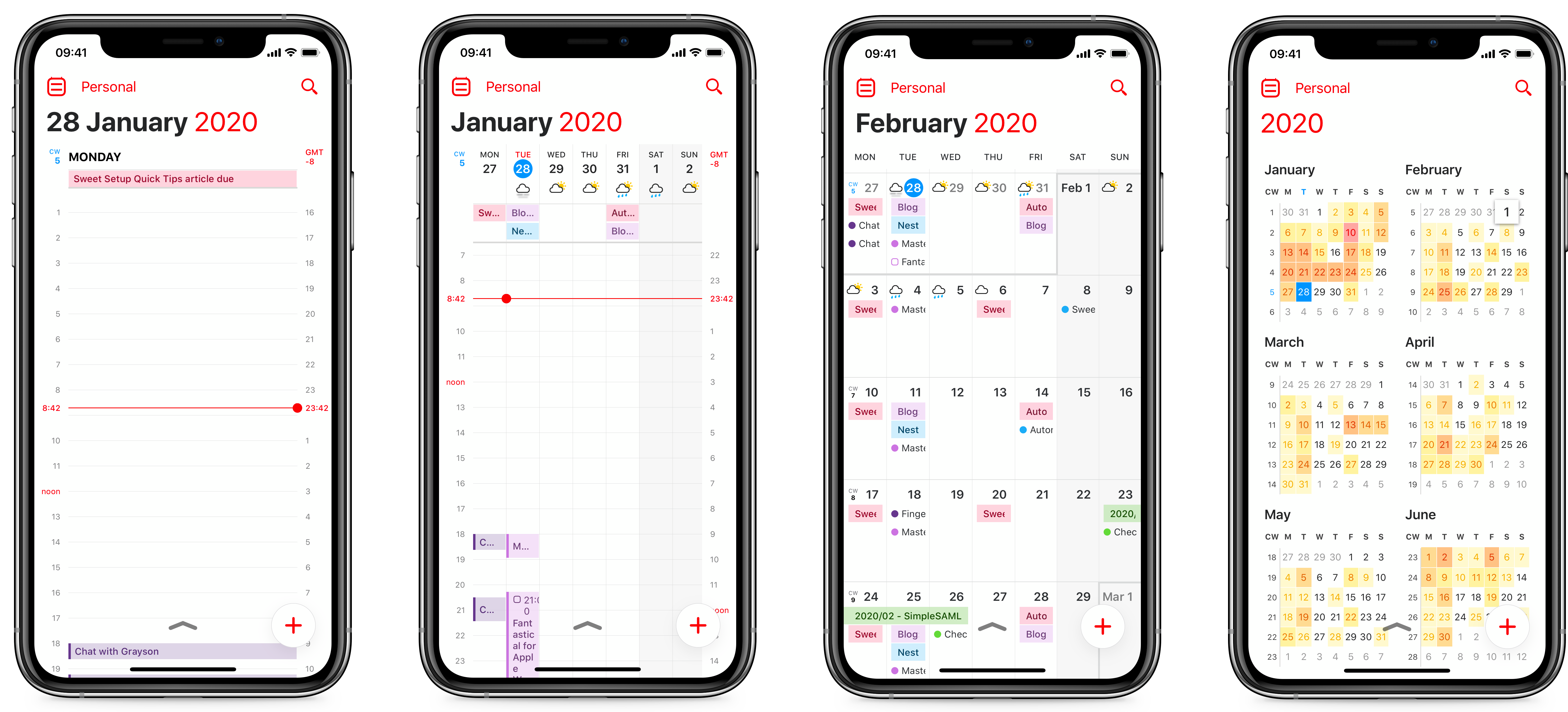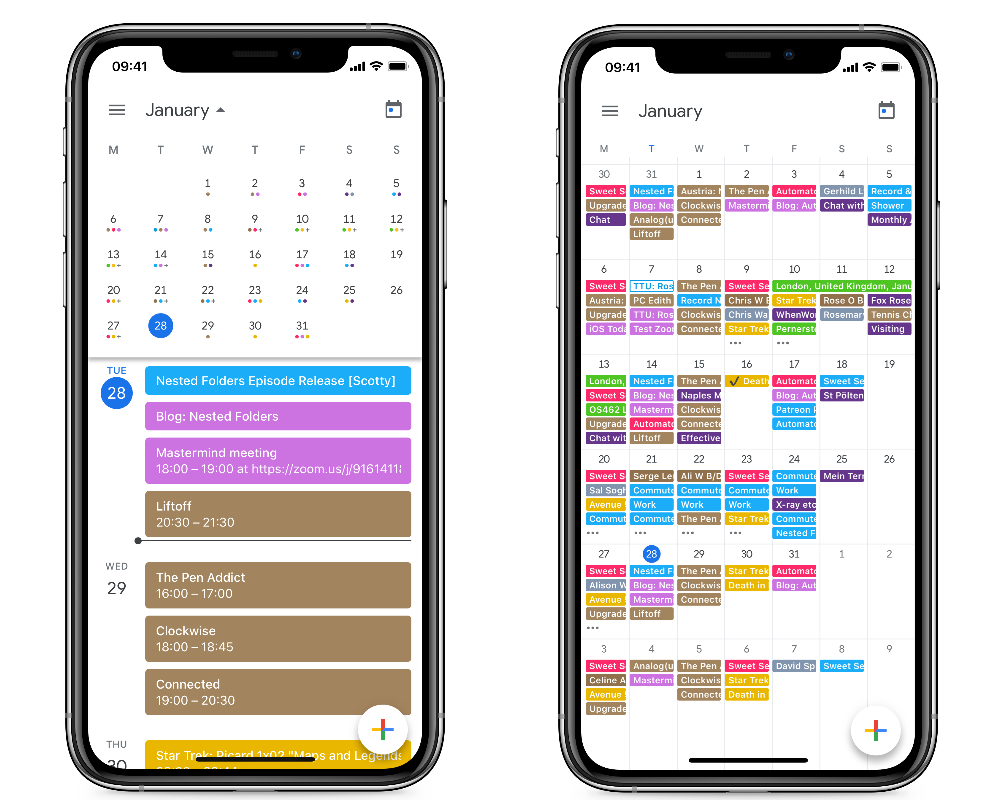Discover the World of Calendar Apps: Essential Tools for Time Management and Productivity
Calendar apps have become indispensable tools in our digital age, offering a myriad of features that empower us to manage our time effectively, stay organized, and collaborate seamlessly. From personal use to business applications, calendar apps cater to a wide range of needs, providing a comprehensive solution for scheduling, reminders, and synchronization.
As we delve deeper into the realm of calendar apps, we’ll explore their key features, different types, and the benefits of integration with other productivity tools. We’ll also discuss customization options, security considerations, and emerging trends that are shaping the future of calendar apps.
Key Features of Calendar Apps
Calendar apps have become indispensable tools for managing schedules, organizing events, and staying on top of appointments. They offer a wide range of features that enhance user experience and cater to various needs.
Essential features commonly found in calendar apps include:
- Event scheduling:Create and manage events, specifying dates, times, and locations.
- Reminders:Set up alerts and notifications to remind users of upcoming events.
- Synchronization:Sync calendars across multiple devices, ensuring access to schedules from anywhere.
Advanced features enhance the functionality of calendar apps:
Natural Language Processing (NLP)
NLP allows users to interact with calendar apps using natural language, making scheduling and event creation more intuitive.
AI-Powered Scheduling
AI algorithms analyze user schedules and preferences, suggesting optimal times for meetings and events, and automating scheduling tasks.
Types of Calendar Apps
Calendar apps can be broadly categorized based on their target audience and specific use cases. They range from apps designed for personal use to those tailored for business professionals and teams.
The key features and benefits of each type of calendar app vary depending on the target audience. Let’s explore the different types of calendar apps in more detail:
Personal Use Calendar Apps
- Designed for individuals to manage their personal schedules, appointments, and events.
- Offer features like task management, reminders, and synchronization with other devices.
- Examples include Google Calendar, Apple Calendar, and Microsoft Outlook.
Business Calendar Apps
- Designed for business professionals to manage their work schedules, meetings, and appointments.
- Offer advanced features such as team scheduling, resource management, and integration with business tools.
- Examples include Calendly, Doodle, and Teamup.
Team Calendar Apps
- Designed for teams to collaborate on project schedules, track deadlines, and manage resources.
- Offer features like shared calendars, real-time updates, and project management tools.
- Examples include Asana, Trello, and Basecamp.
Integration with Other Tools
Integrating calendar apps with other productivity tools is essential for boosting productivity and streamlining workflows. By connecting calendars to email clients, task managers, and video conferencing platforms, users can centralize their schedules and tasks, reducing the risk of missing appointments or forgetting commitments.
Email Integration
- Allows users to view upcoming appointments and events directly within their email inbox.
- Enables easy scheduling of meetings by sending invitations and tracking RSVPs.
- Provides reminders and notifications for important events and deadlines.
Task Management Integration
- Connects calendars to task managers, allowing users to assign tasks to specific dates and times.
- Provides a comprehensive view of tasks and appointments, helping users prioritize and manage their time effectively.
- Automates task creation based on calendar events, ensuring timely completion of related tasks.
Video Conferencing Integration
- Enables users to schedule video conferences directly from their calendar.
- Provides easy access to meeting links and dial-in information.
- Integrates with video conferencing platforms, allowing users to join meetings directly from their calendar.
Customization and Personalization

Calendar apps offer extensive customization options to tailor the user experience to individual preferences. Users can personalize various aspects of the app, including event colors, reminders, and interface themes, to enhance usability and productivity.
Event Customization
- Assign unique colors to different types of events for easy visual identification.
- Set custom reminders with varying lead times and recurrence patterns to ensure timely notifications.
Interface Customization
- Choose from a range of interface themes to match personal preferences and device aesthetics.
- Adjust the layout and font size to optimize readability and reduce eye strain.
Benefits of Personalization
- Improved organization and visual clarity through color-coded events.
- Reduced missed appointments and increased productivity due to tailored reminders.
- Enhanced user experience by aligning the app’s appearance and functionality with individual needs.
Security and Privacy
Calendar apps handle sensitive information, including appointments, meetings, and personal events. Users must trust that their data is secure and private.
Reputable calendar apps implement robust security measures to protect user information. These measures include encryption, authentication, and access controls.
Encryption
Encryption is a process that converts data into an unreadable format. This makes it difficult for unauthorized individuals to access or use the data.
Most calendar apps use encryption to protect user data. This ensures that even if the data is intercepted, it cannot be read or understood.
Authentication
Authentication is the process of verifying a user’s identity. This is typically done through a password or biometric data.
Calendar apps use authentication to ensure that only authorized users can access their data. This helps to prevent unauthorized access to sensitive information.
Access Controls
Access controls are rules that define who can access certain data. This can be based on factors such as user role or group membership.
Calendar apps use access controls to restrict access to sensitive information. This helps to ensure that only authorized users can view or edit important data.
Best Practices, Calendar apps
In addition to the security measures implemented by calendar apps, users can take steps to protect their privacy. These steps include:
- Using a strong password
- Enabling two-factor authentication
- Limiting access to sensitive data
- Being cautious about sharing calendar data with others
By following these best practices, users can help to protect their privacy and keep their calendar data secure.
Emerging Trends in Calendar Apps

The landscape of calendar apps is constantly evolving, driven by advancements in technology and changing user needs. Emerging trends in calendar app development include the adoption of artificial intelligence (AI), machine learning (ML), and voice control. These technologies are transforming the way users interact with their calendars, making them more proactive, personalized, and efficient.
Adoption of Artificial Intelligence and Machine Learning
AI and ML algorithms are being integrated into calendar apps to automate tasks, improve scheduling accuracy, and provide personalized recommendations. For instance, AI-powered assistants can analyze a user’s calendar and identify patterns, such as recurring meetings or optimal time slots for appointments.
ML algorithms can learn from a user’s behavior and preferences, suggesting relevant events and reminders.
Voice Control Integration
Voice control is becoming increasingly popular for interacting with calendar apps. Users can now add events, check their schedules, and set reminders using voice commands. This hands-free functionality enhances convenience and productivity, particularly in situations where typing or navigating the app interface is impractical.
Proactive and Personalized Scheduling
Calendar apps are evolving to become more proactive and personalized. AI algorithms can analyze a user’s schedule, preferences, and habits to suggest optimal times for appointments and meetings. They can also identify potential conflicts and suggest alternative arrangements. Additionally, calendar apps are incorporating features that allow users to customize their schedules based on their personal preferences and goals.
Closure
Calendar apps have revolutionized the way we manage our time and stay organized. With their intuitive interfaces, powerful features, and seamless integrations, they have become essential tools for individuals, teams, and businesses alike. As technology continues to advance, we can expect calendar apps to become even more sophisticated and personalized, offering a truly transformative experience for time management and productivity.
Detailed FAQs
What are the key features of calendar apps?
Calendar apps typically offer a range of features, including event scheduling, reminders, synchronization, natural language processing, and AI-powered scheduling.
What are the different types of calendar apps?
Calendar apps can be categorized based on their target audience and specific use cases, such as personal use, business professionals, and teams.
How do calendar apps integrate with other tools?
Calendar apps can integrate with other productivity tools, such as email clients, task managers, and video conferencing platforms, to enhance productivity and streamline workflows.
Can calendar apps be customized?
Yes, calendar apps offer customization options, allowing users to personalize event colors, reminders, and interface themes to suit their preferences.
Are calendar apps secure and private?
Calendar apps take measures to protect user information, such as encryption and authentication protocols. However, it’s important to follow best practices for maintaining data privacy and preventing unauthorized access.



